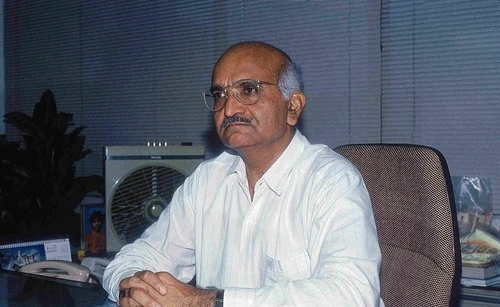Karsanbhai Patel is a leading entrepreneur in India, known best for becoming just a lab technician to a billionaire, you know? And yes, he is presently a billionaire with an estimated net worth of $6.2 billion. That’s all because he’s the one behind the Nirma company. Though Karsanbhai Patel is a successful man, his early life was not prosperous, but why? From being a small-town lab technician, he came to be one of the richest people in the world. To be honest, if you take a look at his life story, you’ll certainly find it a super inspiring one, and that’s what we are about to do here. So, here we go.

| Features | Details |
| Name | Karsanbhai Khodidas Patel |
| Known For | Founder of Nirma Group |
| Net Worth | $6.2 Billion (2024) |
| Age | 80 years old |
| Date of Birth | 1945 |
| Education | BSc in Chemistry |
| Founded | Nirma (1969) |
| Major Acquisitions | Lafarge India (2016), Glenmark Life Sciences (2023) |
| Awards and Recognition | Padma Shri (2010), Udyog Ratna (1990), Honorary Doctorate from Florida Atlantic University (2001) |
Early Life and Education
Back in the year 1945, Karsanbhai Patel was born in Ruppur, a village close to the Patan district of Gujarat. From a very early age, his poor background and a farmer’s family taught him the value of a simple life, you know? As you may already know, his mother and father spent a lot of time on their farm and contributed a significant part of their produce to the family. Nevertheless, he managed to get an education and earned a Bachelor of Science in Chemistry at the age of 21. And just so you know, his first job was as a laboratory technician in the Geology and Mining Department of the Govt. of the State of Gujarat. He also worked in the New Cotton Mills in Ahmedabad.
The Birth of Nirma
In 1969 while still working as a technician at the laboratory Karsanbhai experimented for the first time with the making of detergent powder in his backyard. Later, his new cleaning product was sold directly to the customers from his bicycle for a mere 3 rupees per kilogram of excellent quality which was far less expensive than anything available in the market, you know? Just so you know though, he named his product Nirma meaning “Nirupama”, the name of his late daughter who died when she was just a few years old. Due to the high quality and low price, the product soon gained wide popularity, and why shouldn’t it? And then it kept on growing like this, and then it sure turned into a multibillion-dollar business, and made him one of the richest people in the country as well.
Contributions to Education
If you get to know him a little better, you’ll easily understand that Karsanbhai Patel has always placed the most value on education through his success. For example, in 1995, he founded the Nirma Institute of Technology, which quickly became the top engineering college in Gujarat. Later down the line though, he set up Nirma University, which incorporated several institutes such as engineering and management schools. Likewise, he also started Nirmalabs in 2004 to promote entrepreneurship among young people.
Recognition and Awards
Karsanbhai Patel, a true pioneer of the 21st century, has made a significant mark on both the business world and the community through his many philanthropic works, and we must say that. All of his philanthropic work hasn’t gone unnoticed though, he has literally won many awards in the country, like, in 2010, he was awarded the prestigious ‘Padma Shri’, one of India’s highest civilian distinctions, which acknowledged his great influence on the industry. In addition, he was honored with the “Udyog Ratna” award in 1990 for his involvement in small enterprises, and in 2001, he was granted the honorary title of a doctor at Florida Atlantic University.
Legacy and Impact
All in all, Karsanbhai Patel in India made the first everlasting impression on the consumer market through the quality of his products at the less expensive price point, and that’s what makes him and his brand special. The step that Nirma took in breaking down detergents into small packing units was what the communities were looking for. Thus, it made detergents accessible to the masses whose initial assumption was that they were not for them.